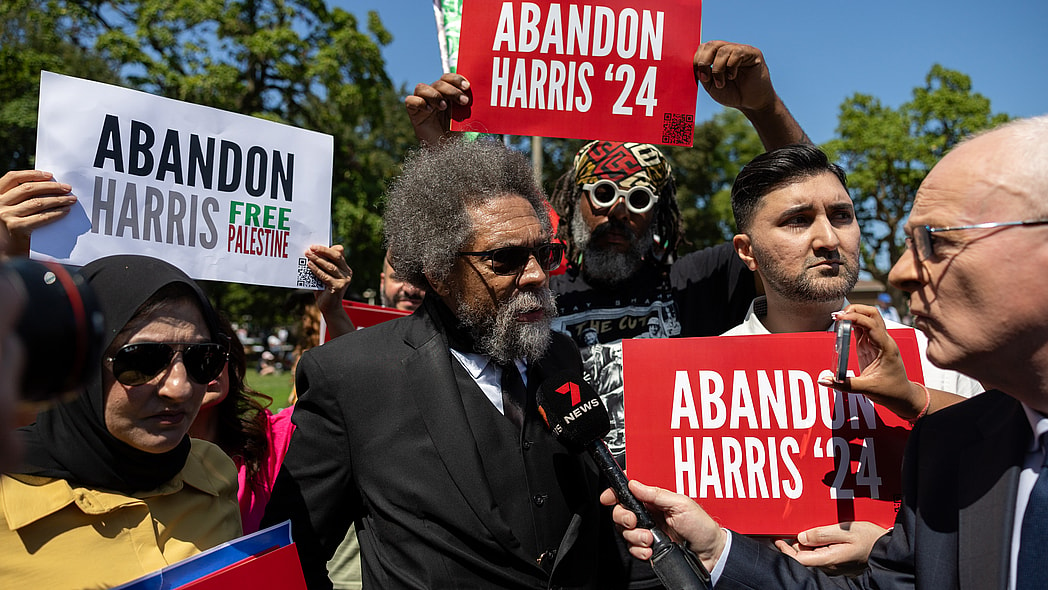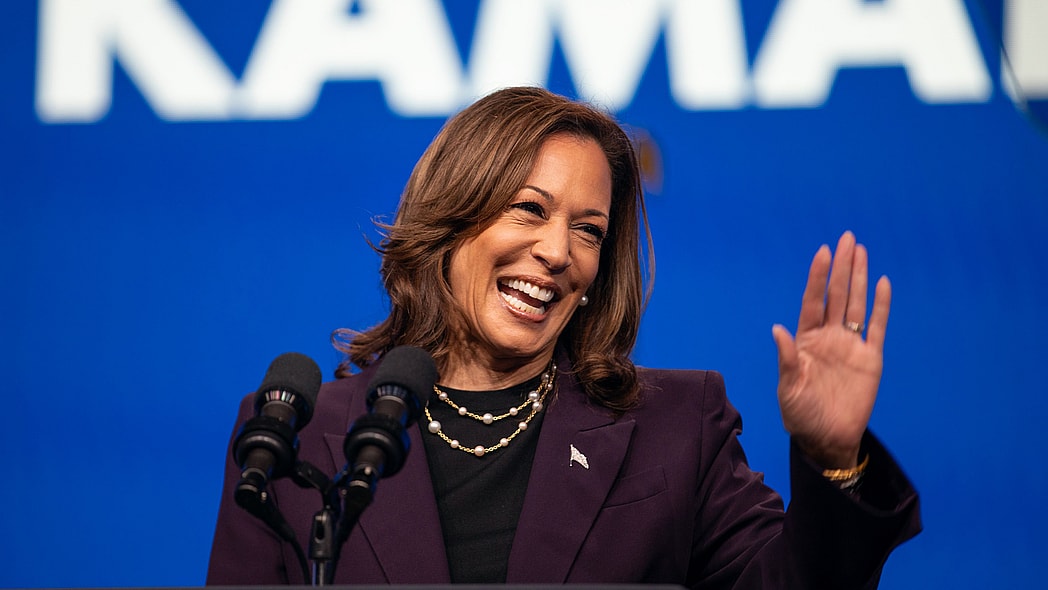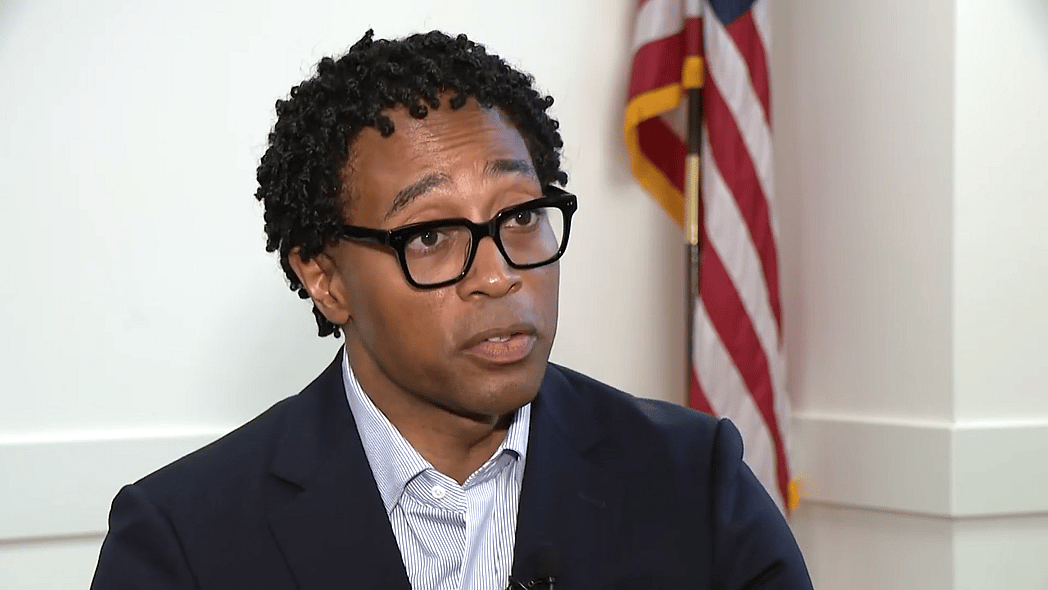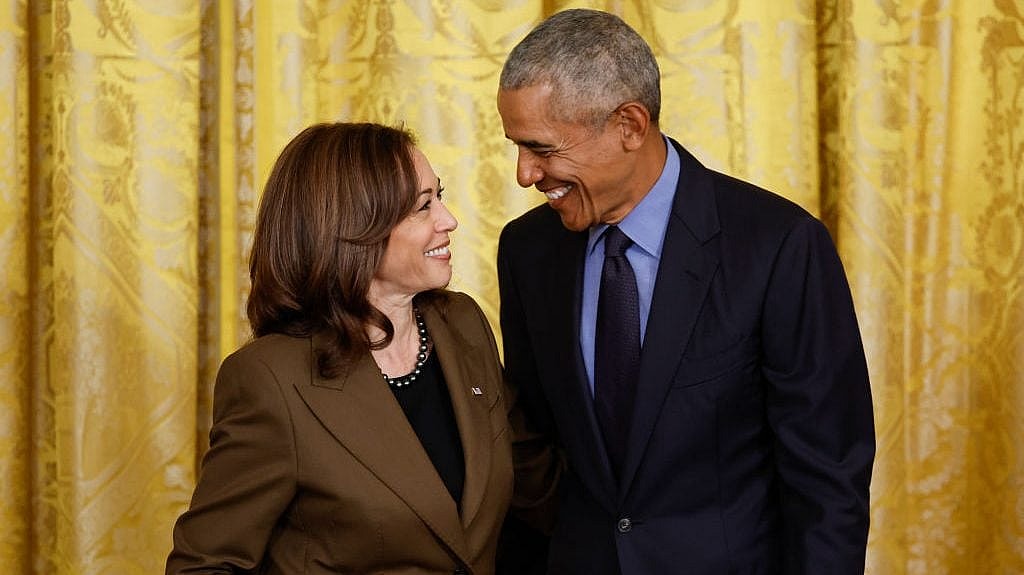Editor’s note: The following article is an op-ed, and the views expressed are the author’s own. Read more opinions on theGrio.
On March 9, 1965, people who were not from Selma, Ala., were angry.
They’d come from all over the country after hearing about the violent attack on Bloody Sunday. They were going to march from Selma to Montgomery again. But when organizers obeyed a court injunction and turned the crowd around, many of the predominately white crowd questioned the courage of the march’s high-profile leader. “We were mad; we were all ready to get our ass kicked that afternoon,” recalled Student Nonviolent Coordinating Committee Field Secretary Hardy Frye. “It was not only SNCC people. There were ministers, some Catholic priests, they were mad because they thought they were going to be martyrs for the cause that morning.”
It wasn’t just white ministers who were disappointed. The 700 students from Tuskegee were “mad as hell” that the leaders were backing down from racist Alabama Gov. George Wallace’s stormtroopers. The young members of the SNCC, who had traveled from as far away as New York and Mississippi, felt “disgust and fury.” Outspoken organizer James Forman directed his ire at President Lyndon Johnson, declaring: “If we can’t sit at the table of democracy, we’ll knock the f*cking legs off!” But almost everyone blamed the march’s celebrity cowardly co-captain for stopping the protest.
They were not wrong.
Still, the popular co-captain didn’t care. It was not the first time he had been criticized for being too moderate. After he declined an offer to join the Freedom Rides a few years earlier, members of the multiracial Congress of Racial Equality accused him of being a pawn of white politicians. Birmingham’s legendary civil rights soldier threatened to tell the world he was a coward when the famous activist pressed pause on segregation protests and negotiated with white civic leaders. “When I see it on TV, that you have called it off, I will get up out of this, my sickbed, with what little ounce of strength I have, and lead them back into the street,” wrote the fearless Rev. Fred Shuttlesworth, who was recovering from a violent beating. “And your name’ll be Mud.”
Six months after “Turnaround Tuesday,” that celebrity march captain stood in the Oval Office as President Lyndon Johnson signed the Voting Rights Act of 1965. That same “politically ambitious” activist also convinced the Kennedy administration to protect the Freedom Riders and issue rules banning segregation on interstate transportation. Less than six days after suspending the Birmingham protests, “the most segregated place in America” struck a deal to integrate lunch counters, eliminate whites-only restrooms and start a “Negro employment” program. As it turns out, he was not a coward. His name was not “Mud.”
His name was Martin Luther King Jr.
Recommended Stories
Vice President Kamala Harris is not Martin Luther King Jr.
Since Hamas’ October 7 attack on innocent Israeli citizens, the Israeli Defence Forces have killed more than 40,000 Palestinians, wounded another 92,000 and displaced nearly 2 million Palestinians, according to Gaza’s Health Ministry. While United Nations experts and other human rights groups have called it a “live-streamed genocide,” the American government continues to send weapons, money and unwavering support to Israel. And many of those concerned with protecting the lives of Palestinian babies and innocent civilians also feel that Harris has been too moderate on Gaza.
As a member of the executive branch, the de facto leader of the Democratic Party and the only half of the Biden-Harris administration who can successfully navigate treacherous obstacles like staircases and debate questions, Harris certainly bears some measure of accountability for what’s happening in Gaza. According to pro-Palestenian activists, the VP cannot tout her executive-level experience and political influence while simultaneously distancing herself from an ethnic cleansing campaign supported by the administration in which she is second in command.
They are not wrong.
While the vice president called for a cease-fire even before she was the Democratic nominee, some activists are now threatening to kick the legs off Harris’ campaign table. Most notably, the leaders of the Uncommitted National Movement have threatened to withhold their support from the vice president’s presidential campaign until she endorses a permanent cease-fire, denounces Trump’s position on Israel and places conditions on weapons transfers to Israel. Some defiant activists are even vowing to sling mud on Harris’ name. “I don’t care who we vote for,” said one pro-Palestenian Uncommitted student leader. “I’mma do everything I can to make sure that b*tch does not win and the Democratic Party loses the election.”
“Pump your brakes,” said Black people.
According to a recent Pew Research, 77% of Black Americans — many of whom share the same outrage over Netanyahu’s baby-killing crusade — say they would vote for Harris if the 2024 presidential election were held today. Some Black Americans — many of whom share the same outrage over Netanyahu’s baby-killing crusade — point out that voting is a binary choice. In a two-party system, withholding one’s vote from Harris could help elect Donald Trump, who would be worse for Palestinians in Gaza and Black people in America.
They are not wrong.
The political dispute has sparked a double-sided backlash between two groups of supposed allies. One side has accused Black Americans of joining the cheerleading squad for a status quo candidate at the expense of massacred Palestinian babies. Meanwhile, some Black people allege that pro-Palestinians are willing to “fearmonger and threaten [Black people] with a potential Trump presidency” that would erase much of the racial progress that protects African Americans.
Why do Black people have to care about everyone while expecting everyone to not care about anyone but themselves?
While withholding our votes unless Harris denounces Trump’s position on Israel and agrees to say stuff she’s already said seems like they’re playing in our faces, the history of Black America is filled with examples of conditional allyship — people who demand that Black Americans support their causes from the back of the bus. White feminists recruited the members of Delta Sigma Theta for their suffrage rally but demanded they march behind white women. White women want their reproductive rights but vote for anti-Black, anti-choice legislators in every major election. The NRA supports Second Amendment rights but is conspicuously silent when police kill legal gun owners like Philando Castile, Emantic Bradford Jr. or Atatiana Jefferson.
When Uncommitted boasts that it has registered thousands of “people of consciousness previously apathetic to the democratic process,” apparently these unconscious indifference-makers weren’t concerned about Black people. Of course, Black infant mortality, police violence, right-wing terrorism, gun violence, Black maternal mortality and the government-sanctioned policies responsible for the mass massacre of Black people aren’t as egregious a genocide as a foreign government dropping bombs on innocent families.
There are more Black people experiencing food insecurity in America than Palestinians in Gaza. Maybe we need to start livestreaming Black mothers dying at 2.6 times the rate of white women to get someone to commit to us. Do they need a YouTube channel showing Black babies dying at 2.4 times the rate of white babies? You know who else needs clean water? Black people living in America. Maybe we should build an encampment. Oh wait, we already did that. Asking Black Americans to sacrifice the lives and futures of the people in their community for the sake of a community that has not demonstrated reciprocal support is like asking Selmans to sacrifice their skulls so virtue-signaling visitors can participate in a realistic civil rights fantasy camp.
But the worst part of this entire debate is that Black people do care about everyone.
Not only do we have a long history of international activism, Black Americans pioneered the protest methods that the pro-Palestenian movement now employs. Students at historically Black colleges and universities started the anti-apartheid divestment movement on college campuses. The Congressional Black Caucus wrote the bill that overcame Ronald Regan’s veto and sanctioned South Africa’s apartheid government. Martin Luther King Jr., Fannie Lou Hamer, SNCC and Malcolm X all traveled to Africa to fight against colonialism. Black men and women fought for Jews in Germany. Muhammad Ali refused to participate in an unjust war in Vietnam. And we supported Palestine more than anyone else.
Numerous polls have shown that Black Americans are the most likely to criticize the treatment of Palestinians in Gaza. The NAACP, Black Lives Matter Global Network and more than 1,000 Black religious leaders have called on the Biden administration to support a cease-fire. In April, a Carnegie survey showed more than two-thirds of Black Americans, (68%) supported “an immediate and permanent ceasefire in Gaza.” The vast majority (59%) also believed the government should “ensure that Israel uses American weapons for legitimate self-defense and in a way that is consistent with human rights standards.” Aside from President Joe Biden’s debate performance, his administration’s support for Israel was one of the reasons why many Black voters wanted President Biden replaced as the Democratic nominee.
Our tendency to fight for everyone else and ourselves is why Kamala Harris is listening. Our willingness to leverage our political power for the betterment of everyone is the only reason there is a major party political candidate with the opportunity to diverge from decades of blind support for Israel. Still, we are also politically astute enough to know that Palestine is only one of the issues that will decide this election. Most Black voters care about reproductive rights and police reform and criminal justice and reparations voting rights and Palestinian lives. Yet, Black voters are expected to sublimate their social, political and economic well-being for one singular issue. And if we don’t support the pro-Palestinian cause in the exact way Uncommitted wants, these shrewd political protesters are willing to subject their Black allies to the whims of a dimwitted, white supremacist who also doesn’t care about Palestinians.
Please make it make sense.
And pro-Palesitian protesters are also right. What we are witnessing in Gaza is horrific, and we should do everything in our power to stop it. Their voting power is their only political leverage, and there is absolutely no reason to telegraph that they will definitely vote for Kamala Harris on Election Day. But there is also no reason to say they absolutely won’t vote for Harris. While many people criticize Black voters for blindly supporting the Democratic Party, why would any party or political candidate commit themselves to a delegation that is decidedly “uncommitted”? Black people have fought for the peace, safety and security of people around the globe. It’s just what we do. Uncommitted is essentially asking Black voters to let white people choose the president. But why should Black people commit themselves to a cause whose advocates refuse to commit to us?
Although Harris has demonstrated the ability to change America’s political weather (and, apparently, her race), the vice president is not a member of the X-Men (as far as we know). She is just a politician. The Israeli-Palestine conflict is complicated, and no one — not even the most powerful politician in the world — can single-handedly change U.S.-Israel policy. Stopping the genocide in Israel will require international diplomacy, congressional legislation and the broad support of America’s geopolitical allies. Expecting this country to do the right thing because your cause is right and just is extremely naive.
Have you met America?
Here’s a story about a presidential election.
On Dec. 5, 1955, Rev. E.D. Nixon, a well-respected radical civil rights organizer in Montgomery Ala., was upset by the unjust arrest of a Black woman. Nixon summoned all his political allies to a meeting to form a new organization to fight injustice in the city. After putting together some money to bail the woman out, they decided to choose a president and agreed on a strategy, which they would announce at a rally later that day. The younger, more radical members wanted a show of force. The older members wanted a clandestine citywide boycott that wouldn’t make them the target of violence. As the infighting began, Nixon exploded.
“What the hell you people talkin’ ’bout?” Nixon asked. “Unless’n this program is accepted and brought into the church like a decent, respectable organization … I’ll take the microphone and tell ’em the reason we don’t have a program is ’cause you all are too scared to stand on your feet and be counted. You oughta make up your mind right now that you gon’ either admit you are a grown man or concede to the fact that you are a bunch of scared boys!”
Just as Nixon finished his rant, a wet-behind-the-ears, 26-year-old kid who had just moved to the city arrived at the meeting and told Nixon: “I’m not a coward. I don’t want anybody to call me a coward.” The youngster suggested that the group make a list of demands to the city leaders and threaten a boycott if their demands weren’t met.
The young radicals hated the idea. Who was this kid? They had never even seen him before. The city’s powerful white leaders who supported the group also hated the kid. They had secretly told Nixon to ignore the “young upstart.” But the older members of the community knew the kid. He was the new preacher in town. They liked that the kid was an outsider. He was moderate enough to negotiate on their behalf and outspoken enough to stand up for their community. Plus, they were the ones who had been doing the work in Montgomery. Since they outnumbered everyone else at the meeting, they seconded the kid’s plan.
The white people were mad as hell. What if they couldn’t control this kid? The radicals were incensed. What if the kid was too moderate? Would the old Black folks be out there on the front lines? The older members listened quietly to the debate. They said what they said. So Nixon moved on to elect the officers and plan the rally and recruit allies.
At the rally, the fresh-out-of-jail arrestee named Rosa Parks listened to the outsider’s first-ever speech as a leader of a civil rights organization. The young, moderate, newly elected president of the Montgomery Improvement Association explained what they were going to do.
There comes a time, my friends, when people get tired of being plunged across the abyss of humiliation, where they experience the bleakness of nagging despair. There comes a time when people get tired of being pushed out of the glittering sunlight of life’s July and left standing amid the piercing chill of an alpine November. There comes a time!…
We, the disinherited of this land, we who have been oppressed so long, are tired of going through the long night of captivity. And now we are reaching out for the daybreak of freedom. And justice. And equality….
When the history books are written in the future, somebody will have to say, “There lived a race of people … A black people… Fleecy locks and Black complexion … A people who had the moral courage to stand up for their rights … And thereby they injected a new meaning into the veins of history and of civilization.
— the first president of the Montgomery Improvement Association.
But Martin Luther King Jr. was not elected by the young radicals or the ministers or Rosa Parks or the Montgomery Improvement Association or even the Civil Rights Movement. He was elected by Black people. He was elected by the most experienced people, the most strategic group of people who had fought for their rights long enough to understand how protest, political change and white people work.
They were not wrong.
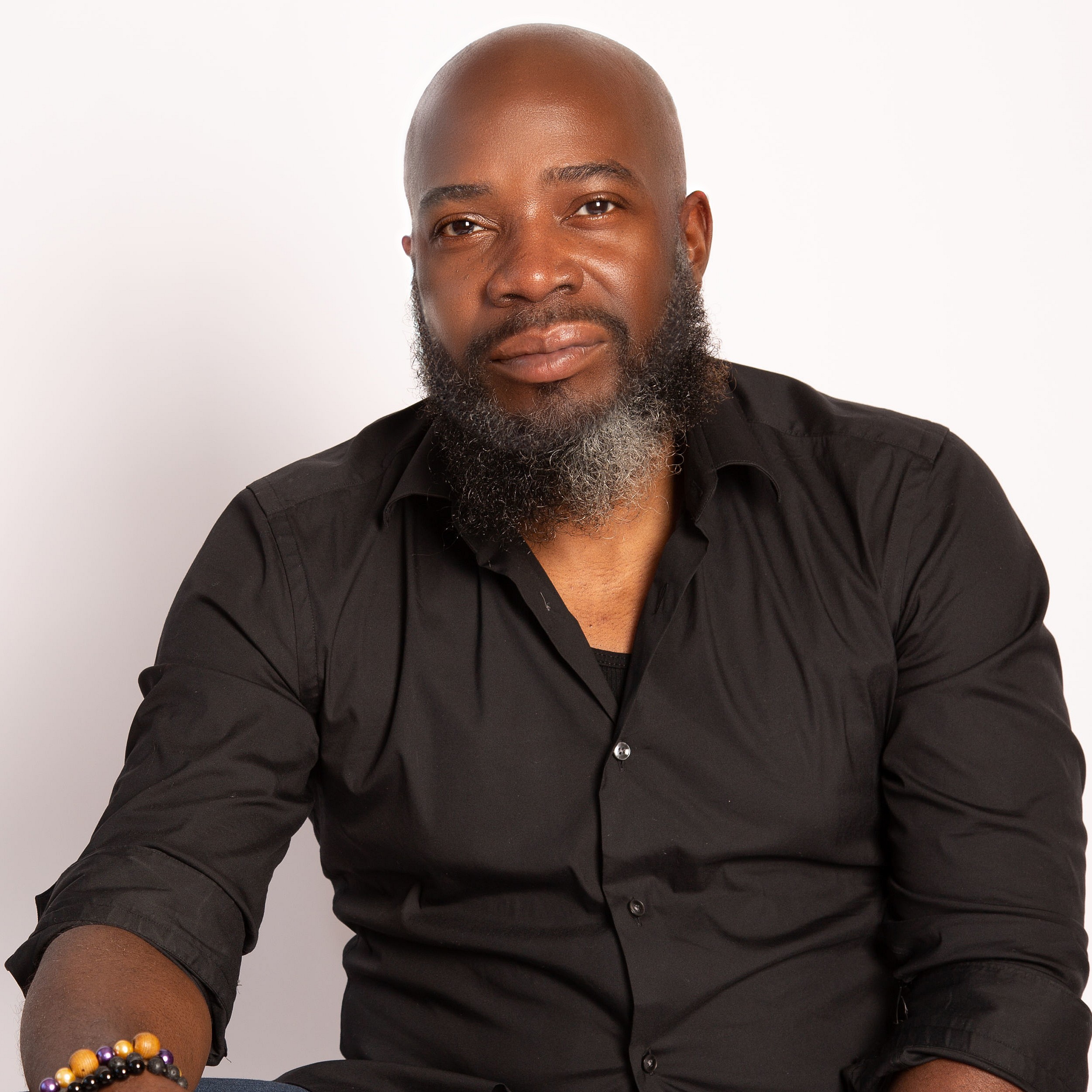
Michael Harriot is a writer, cultural critic and championship-level Spades player. His NY Times bestseller Black AF History: The Unwhitewashed Story of America is available in bookstores everywhere.

